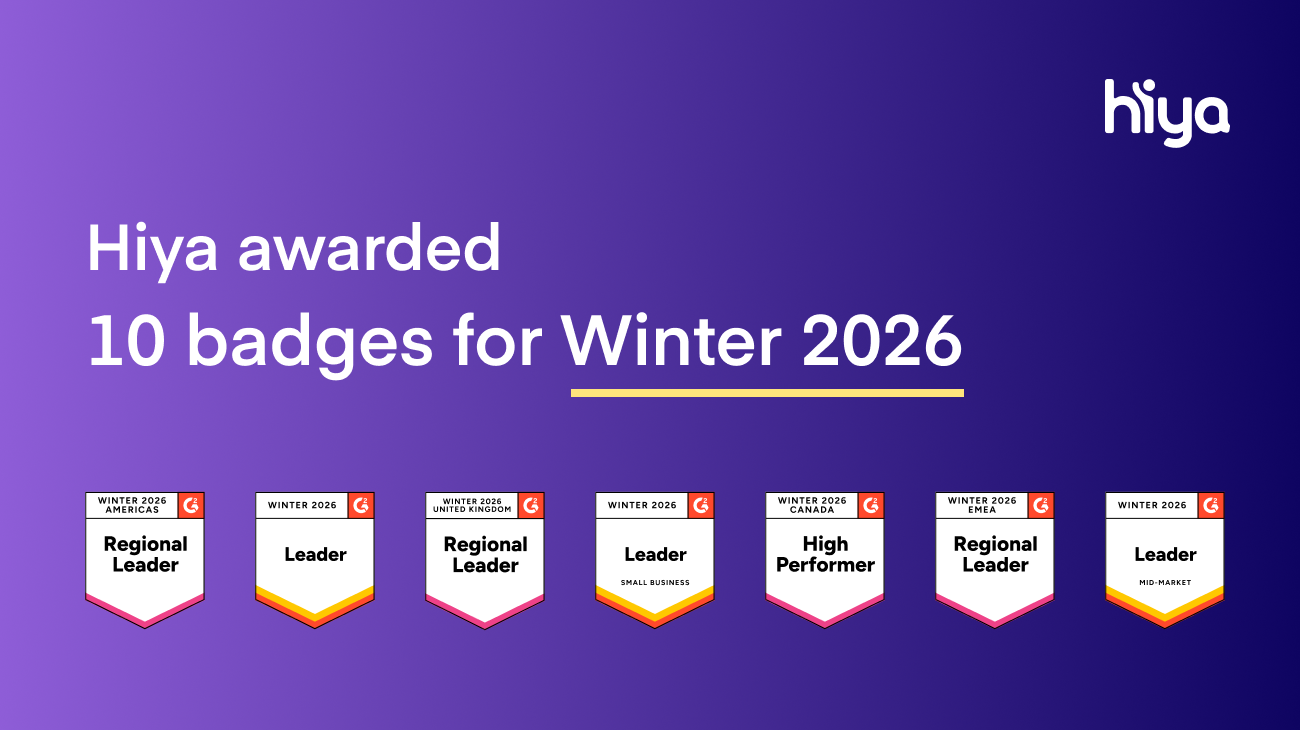-Dec-19-2023-10-10-05-6948-PM.png)
Bank and credit card scams topped the list of fraudulent phone calls worldwide in 2023, with Amazon impersonators coming in second.
The top 10 scams listed below are based on Hiya’s observation of more than 25 billion spam calls (fraud or nuisance) in 39 countries in 2023. More than 2 billion of those unwanted calls were labeled as fraud — illegal calls intended to steal money or personal information from victims.
You can learn how we compiled the data in our methodology section below, but without further ado, here are the most common phone scams worldwide in 2023.

Bank and credit card scams were the most common phone scams in 2023.
-
Bank/credit card scams – Financial scams are common throughout the world, and bank and credit card scams top the list. There are many variations of these scams, but commonly, a fraudster will call to explain that there’s a problem with your credit card or bank account, and they will help you correct the problem. You’ll need to give them your credit card or bank account number and possibly a PIN number so they can reset your account.
-
Amazon impersonators – Amazon is one of the world’s top retailers, so fraudsters making random robocalls have a good chance of reaching someone with an Amazon account. Amazon impersonators may say that they suspect an unauthorized purchase and they need your Amazon account number and password to clear up the matter. Or, they may say the credit card linked to the Amazon account no longer works, and you need to provide them with a new credit card number.
-
Chinese language scams – These scams often begin with a robocall in Chinese that informs the recipient that there is some kind of legal problem and they need to speak to a representative of the Chinese Embassy, Chinese Consulate, local police, or other agencies. Recipients are told that they are accused of some type of violation and must pay a fine immediately to avoid arrest.
-
Medicare scams – There are lots of health insurance scams, but the king of them all is Medicare scams. Often, the goal is to obtain the victim’s Medicare number so the scammer can falsely bill the U.S. government for medical services never rendered. These scams peak during open enrollment season, generally late October through early December.
-
Insurance scams – Insurance scams run the gamut. There are auto insurance scams, life insurance scams, health insurance scams, and burial insurance scams. Often, scammers will use the name of a well-known insurance company to make the call more convincing. They may be trying to sell a bogus policy or fishing for personal information such as a social security number or bank account number.
-
Loan scams – Hiya users report getting scam calls offering fraudulent personal loans, business loans, home loans, car loans, government loans, pre-approved loans, and even student loan forgiveness. If the recipient falls for the scam, the fraudsters will inevitably require a lot of personal and financial information to process the loan.
-
Mobile phone provider impersonators – With this scam, fraudsters pretend to be agents from one of several major mobile phone providers. The caller commonly offers a new phone upgrade or a special rate on a mobile phone contract. While some users report these as unwanted telemarketing calls, most report them as fraud, saying that the caller is trying to gather personal information. One version of this scam begins with a robocall that warns that mobile phone service will be cut off today and requests a call-back.
-
Tax scams – These scams are popular in many countries, with scammers impersonating tax agents in an effort to obtain personal information. There are HMRC scams in the UK, IRS in the US, and CRA in Canada. Scammers may state that the recipient owes unpaid taxes or that they qualify for government-sponsored tax relief. These scams increase in April — which is when taxes are due in the US, UK, and Canada — and then they decline beginning in July (see graph above).
-
Trading and investment scams (including cryptocurrency) – Investment scams account for some of the largest monetary losses among phone scams. Cryptocurrency scams are included in this category. Whether it’s stocks, real estate, or crypto, victims are lured by investments promising high returns, but they often lose much or all of the money they put in.
-
Solar and energy – Energy costs remained elevated throughout 2023, and that brought out scammers trying to cash in on people’s desperation to save on energy bills. The most commonly reported type of energy scam involved solar panel sales, but Hiya users also tell of suspicious calls offering half-price energy bills, clean energy upgrades, government energy subsidies, and offers to conduct energy price comparisons.
Although they were just shy of making the top 10 list, sweepstakes scams, payment app scams, and loved ones scams were also popular in 2023. Looking ahead to 2024, we’ll be keeping an eye on scams that are aided by artificial intelligence. Many AI scams — such as those that use voice clones — are micro-targeted, so they’re unlikely to end up on a top 10 list, but the damage they can do is significant.
Want to know the most common scams in specific countries? Download Hiya’s Global Call Threat Report to find out.
Methodology
Hiya is able to identify and measure specific phone scams using honeypot and user report data. Consumers worldwide using Hiya Protect through their Samsung Smart Call enabled device or the Hiya mobile app can report unwanted calls and can leave a comment describing the call. Keywords in those comments are used to measure the volume of the most common scams and track scam campaigns over time.
Spam is defined as unwanted calls from numbers that are not in an individual’s local address book, and includes both fraud calls and nuisance calls.
How to fight back against phone scams
Although scammers use a variety of tricks to fool their victims, Hiya offers solutions to fight back.
Carriers can add Hiya Protect, a complete call protection solution that enables mobile network carriers to protect their subscribers by blocking fraud calls, labeling spam calls, and helping them discern wanted calls from unwanted calls.
Enterprises can help their customers feel safe answering the phone by adding Hiya Connect, which enables businesses to display their company name, logo, and reason for the call on the recipient’s mobile phone.
Individuals should contact their phone carrier to see if it offers call protection at the network level. If not, individuals can download the Hiya app.
Learn more
Download Hiya’s Global Call Threat Report or check out the Scam of the Month series in the Hiya blog to learn more about common phone scams.

.jpg)

